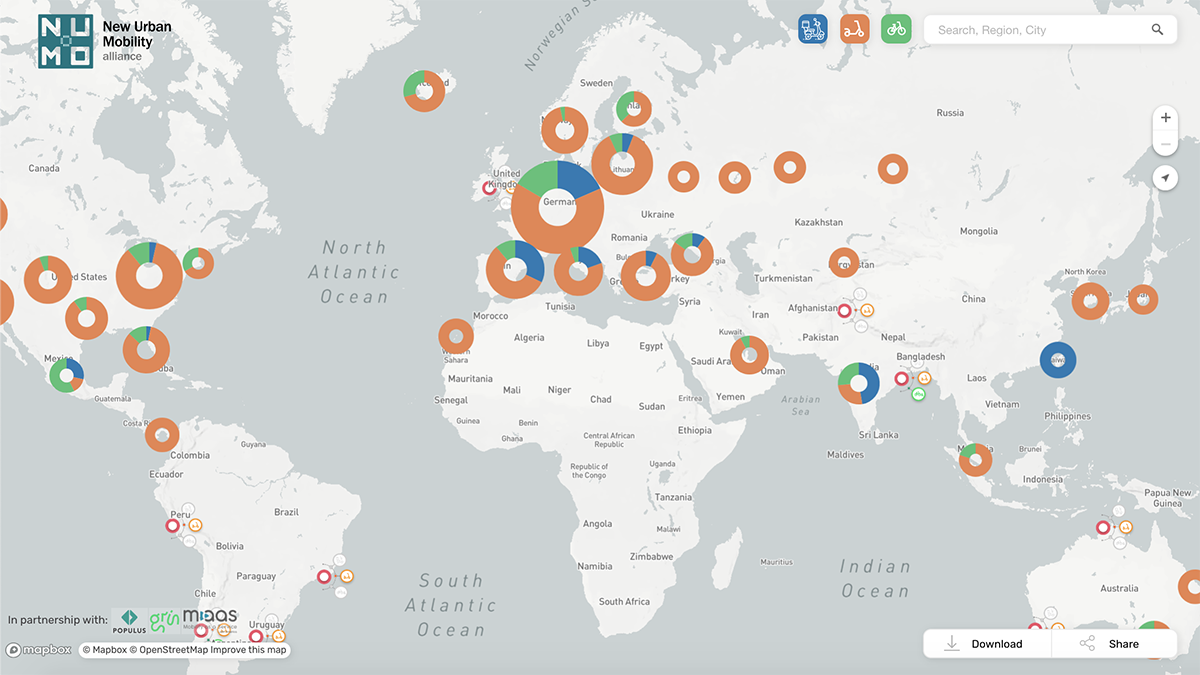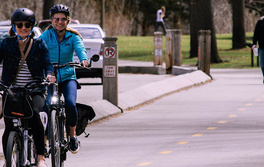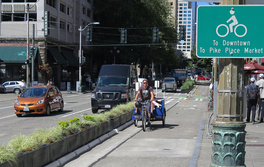
New Mobility Atlas Update — September 2021
NUMO New Mobility Atlas Update — September 2021
Need something refreshing? We’ve got just the thing... We’ve updated the NUMO New Mobility Atlas to reflect changes to the dockless shared mobility landscape in cities around the world.
Here’s the lay of the land…
- 638 unique cities with dockless micromobility 🏙️
- 1,442 total dockless operations* 🚲🛵🛴
- 1,062 electric scooter operations 🛴
- 188 shared bike** operations 🚲
- 192 moped operations 🛵
Here's what's new...
- 303 new cities have welcomed dockless micromobility operators***
- 38 more operators since Q1 2021
- 256 new operations total since Q1 2021
- Data from cities in China were removed because we were unable to verify that bikeshare operators were still running
And here are some highlighted insights...
- Germany saw the biggest increase in dockless micromobility operations — by 94 new operations
- The countries with the greatest number of dockless micromobility operations are:
- The U.S. — 292 total operations
- Germany — 234 total operations
- Poland — 105 total operations
- Barcelona, Spain, is the city with the most currently working dockless micromobility operations — 17 — followed by Milan, Italy, with 13 operators
- The cities that experienced the greatest increase in number of dockless micromobility operations since Q1 2021 are:
- Poznań, Poland — 📈 5 new operations
- Red Deer, Canada — 📈 5 new operations
- Vienna, Austria — 📈 5 new operations
- The cities that witnessed the greatest decrease in number of dockless micromobility operators since Q1 2021 are:
- Arlington, Virginia (U.S.) — 📉 4 operations
- Lyon, France — 📉 4 operations
- Austin, Texas (U.S.) — 📉 3 operations

Visit the NUMO New Mobility Atlas to view all the latest changes and download data.
Notice any missing operations? Reach out to Lydia Freehafer at lydia@numo.global.
* ‘Operation’ refers to a single occurrence of a dockless, shared electric scooter, bicycle or moped program by an operator in a given city
**As of right now, the New Mobility Atlas reflects dockless shared bike operations
***Operator’ refers to private operators of dockless, shared electric scooter, bicycle and/or moped services




